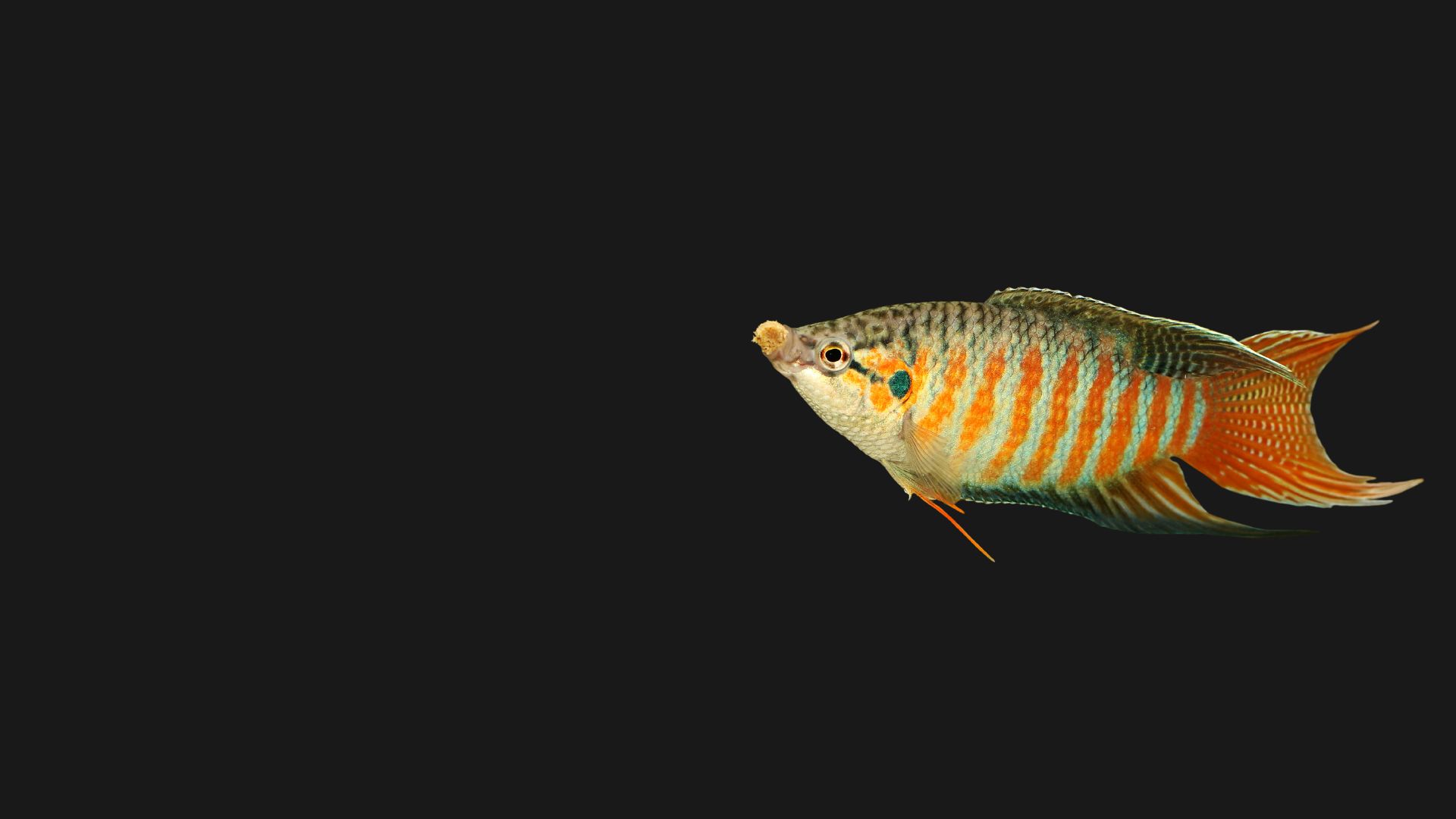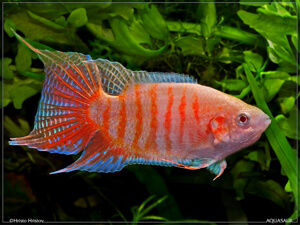
Paradise Fish
Scientific name: Macropodus opercularis
The Paradise Fish is a vibrant and hardy freshwater species native to East Asia, particularly China, Taiwan, and Vietnam. Known for its striking colors, with hues of blue, red, and green, this labyrinth fish can breathe atmospheric air, making it adaptable to a variety of water conditions.
IUCN Red List of Threatened Species : Least Concern
Paradise Fish belong to the gourami family and, like their relatives, possess a labyrinth organ, allowing them to breathe atmospheric air. This makes them more tolerant of low-oxygen environments compared to many other fish species.
In the wild, they are found in slow-moving or stagnant waters such as ponds, rice paddies, and ditches, where they feed on insects, larvae, and small invertebrates.
Their ability to survive in a range of water conditions makes them a resilient species in both their natural habitat and home aquariums.
In addition to their striking appearance and adaptability, Paradise Fish are known for their complex behaviors. Males are territorial and often exhibit aggressive displays to establish dominance, especially during breeding season.

Navite Location
East Asia (China, Taiwan, and Vietnam)
Varieties
Blue / Albino / Black
Suggested Tank Mates
Zebra Danios / Corydoras Catfish / Bristlenose Pleco / Cherry Barbs
Tank Mates to Avoid
Bettas / Gouramis / Tiger Barbs / Cichlids / Angelfish
Diet
Flake Food / Pellets / Brine Shrimp / Daphnia / Blood Worms
Breeding
Bubble Nest / Hatching 24-48 hrs / 3-5 days until swimming
Lifespan
5 to 8 years
Size
6 to 7.5 cm (2.5 to 3 in)
Minimum Tank Size
75 Liters (20 gallons)
Optimum Tank Temperature
21°C to 28°C (70°F to 82°F)
Ideal pH Level
6.0 to 8.0
Water Hardness
5 – 30 dGH
Common Health Issues
Ich (White Spot) / Fin Rot / Velvet Disease / Swim Bladder Disorder / Bacterial Infections / Obesity and Digestive Problems
Interesting facts
Early Aquarium Fish
Paradise Fish were one of the first tropical fish species introduced to the aquarium hobby in Europe, dating back to the 19th century. Their hardiness and striking colors made them popular among early fishkeepers, even before modern heating equipment was available.
Labyrinth Organ
Like other labyrinth fish, Paradise Fish have a special organ that allows them to breathe atmospheric air. This adaptation enables them to survive in low-oxygen environments, such as stagnant ponds or poorly aerated aquariums.
Territorial and Aggressive
Male Paradise Fish are highly territorial, especially during breeding. They will often fight with other males and can be quite aggressive towards similarly sized or slower-moving fish. This behavior is a natural defense mechanism to protect their territory and offspring.
Unique Bubble Nests
Male Paradise Fish build bubble nests to care for their eggs after spawning. They blow bubbles that float at the water’s surface and place the fertilized eggs in the nest, where the male then guards them until they hatch.
Color Changes During Courtship
Male Paradise Fish intensify their coloration during courtship and breeding. Their colors become more vivid to attract females and to display dominance over rival males. This bright display is an important part of their mating ritual.
Temperature Tolerance
Unlike many tropical fish, Paradise Fish can tolerate a wide range of temperatures, from cooler waters around 60°F (15°C) to warmer waters above 80°F (27°C). This adaptability makes them more resilient in changing environments.
